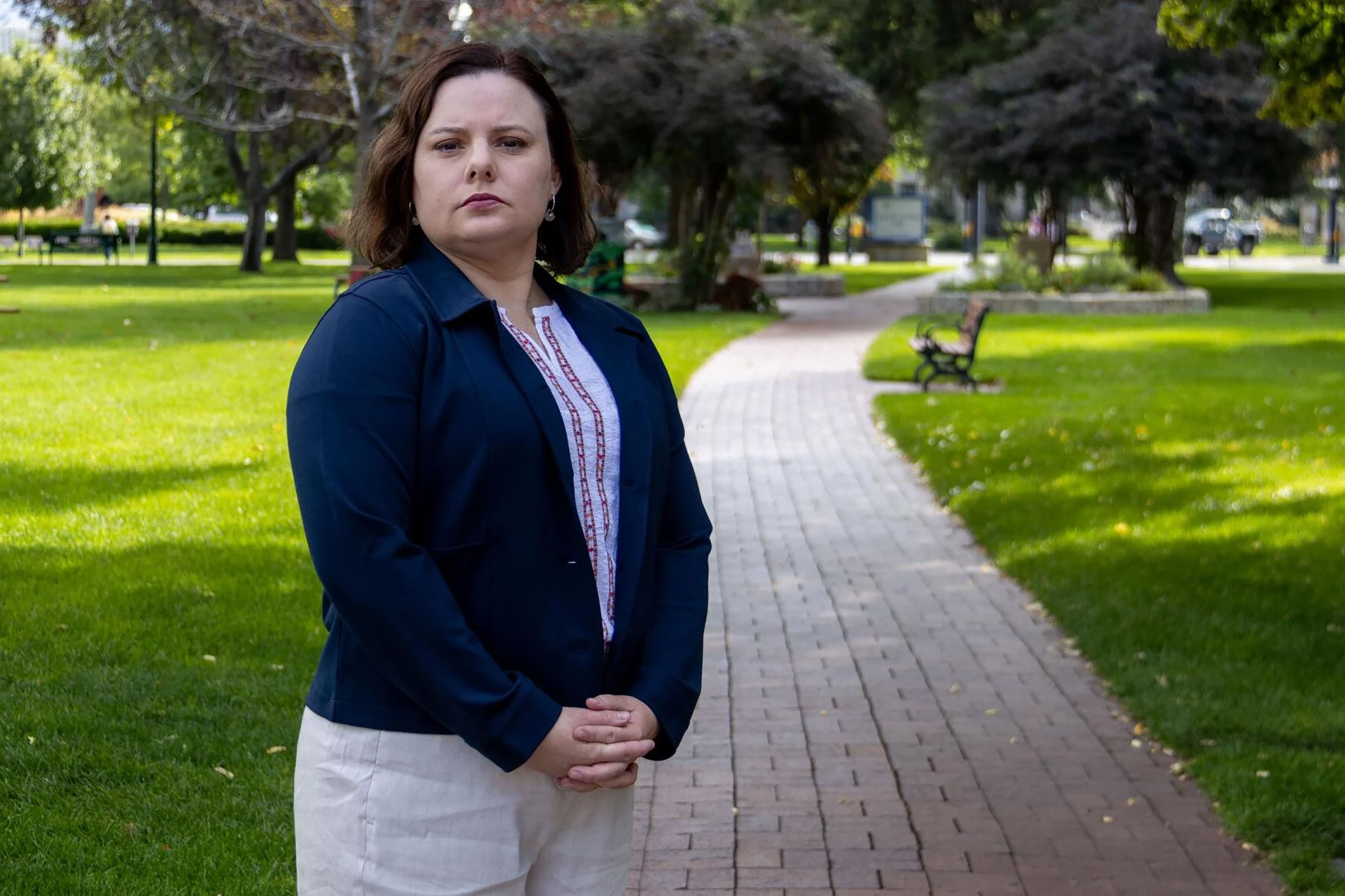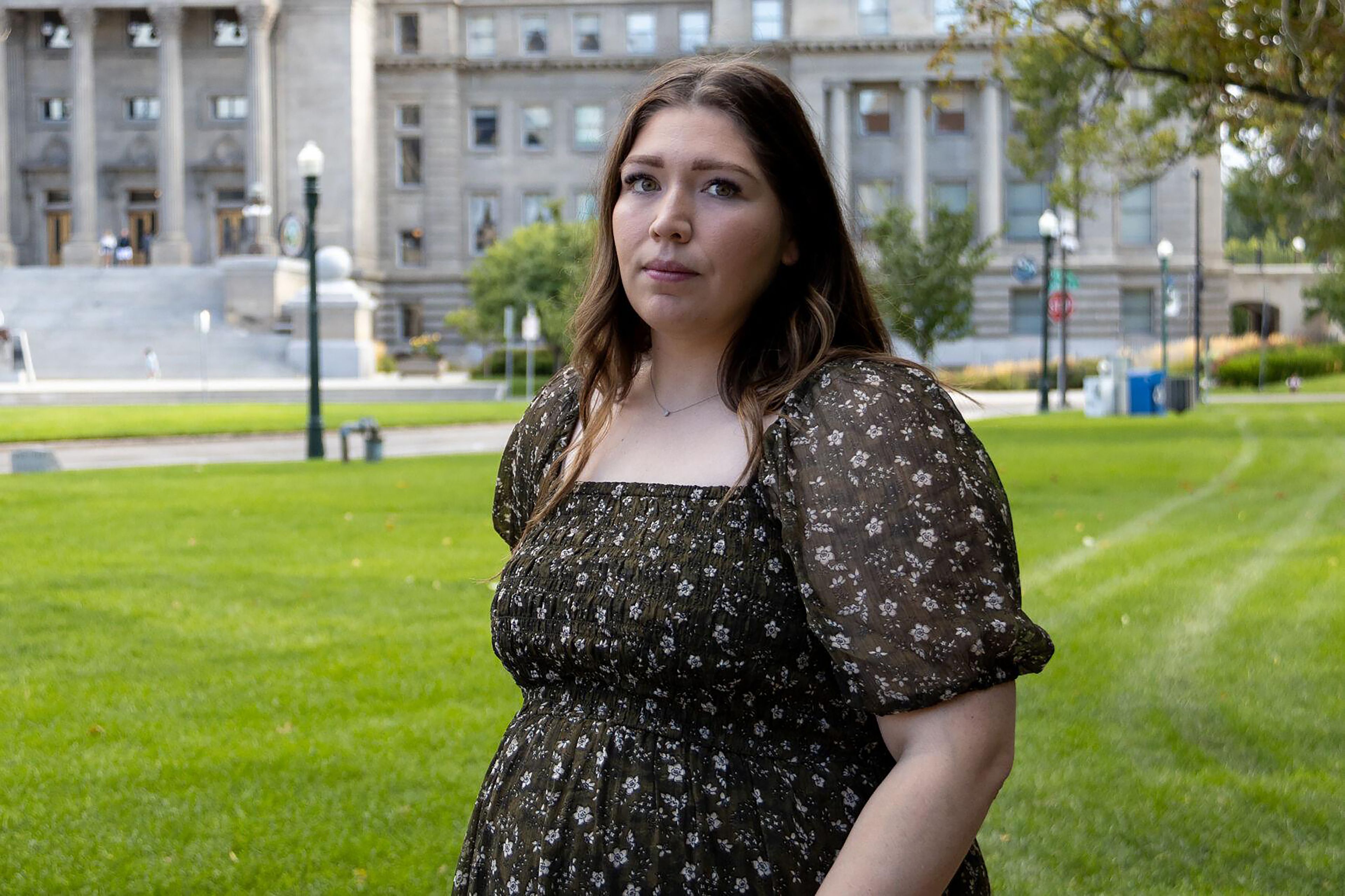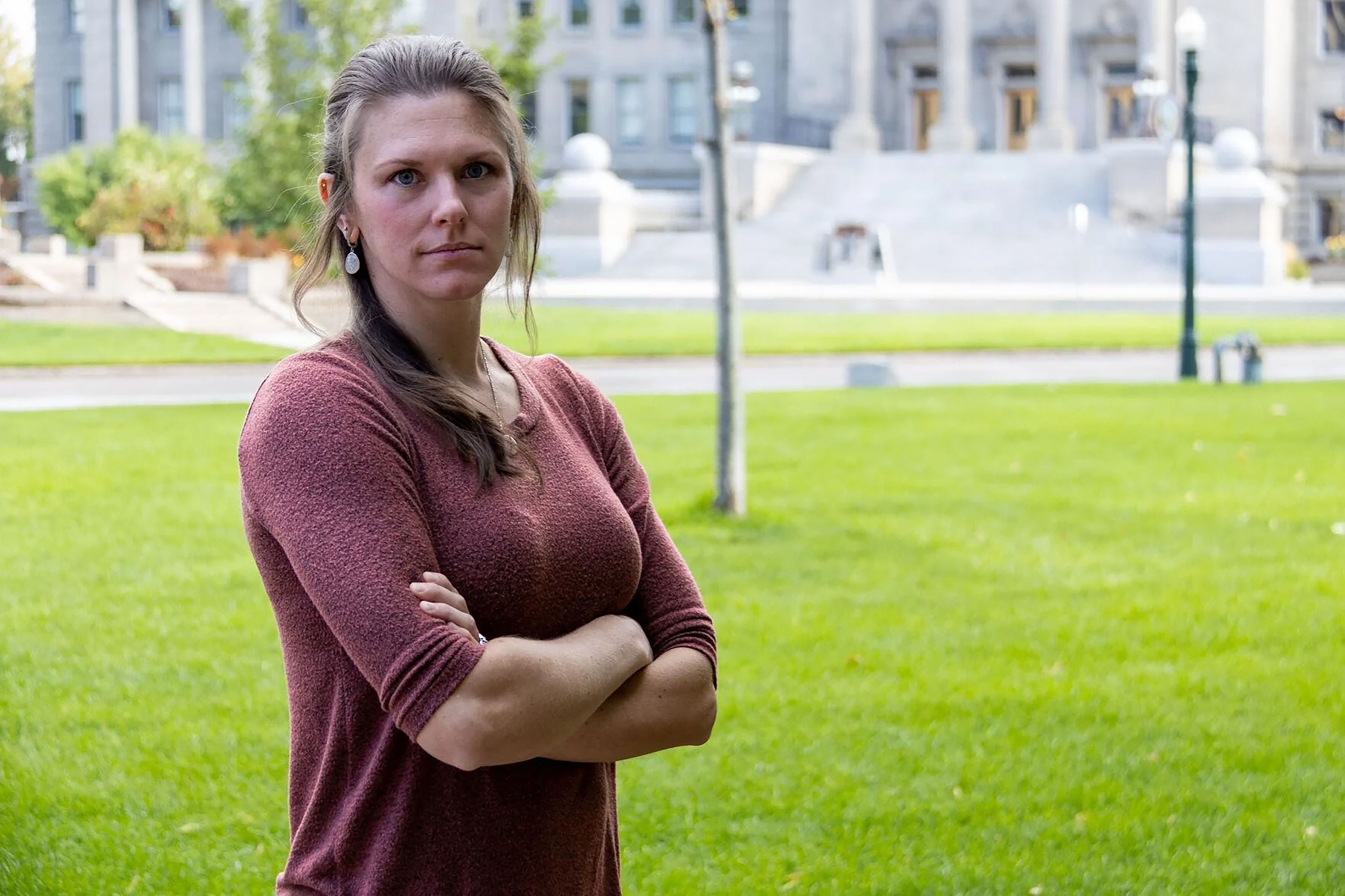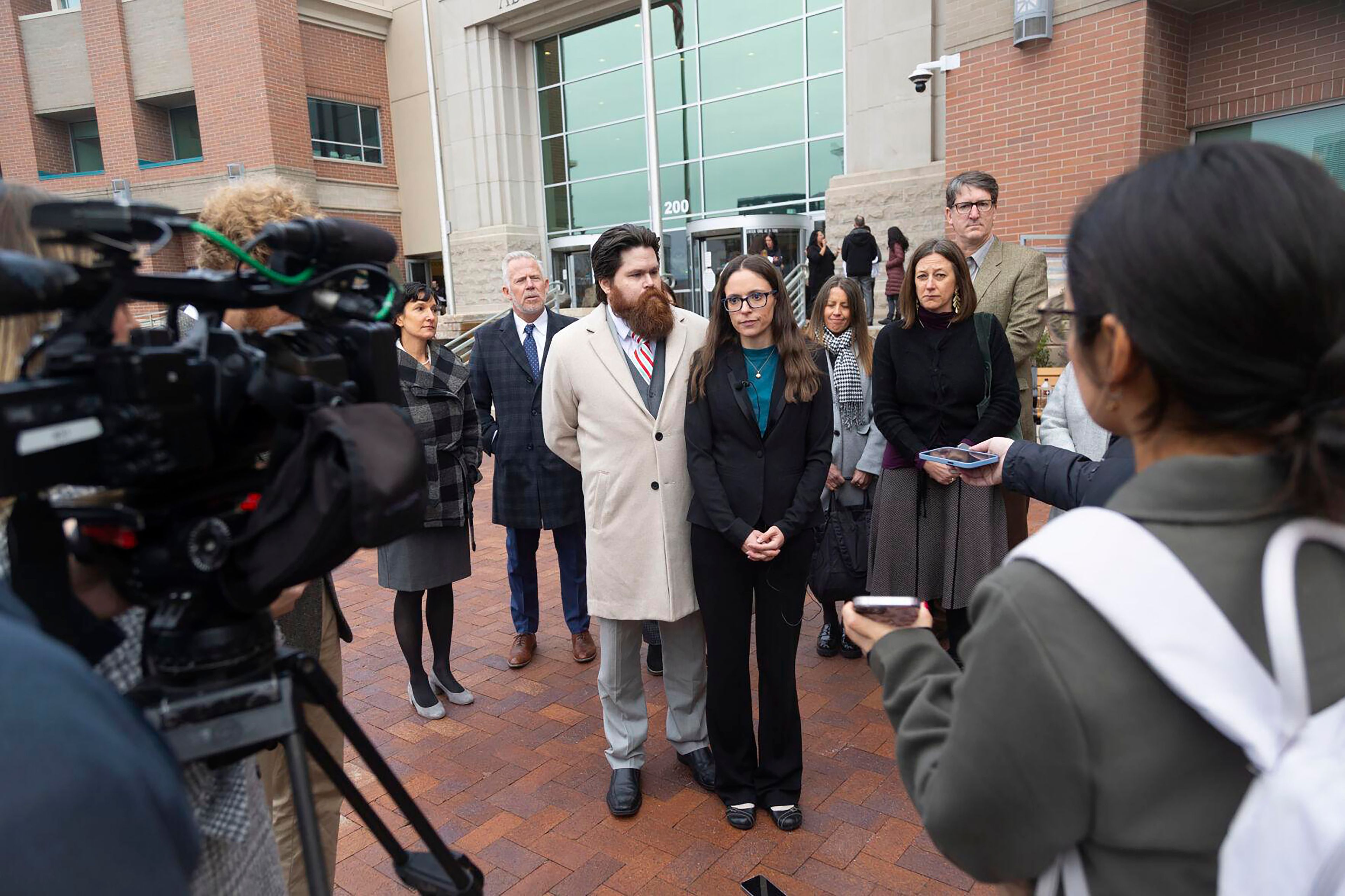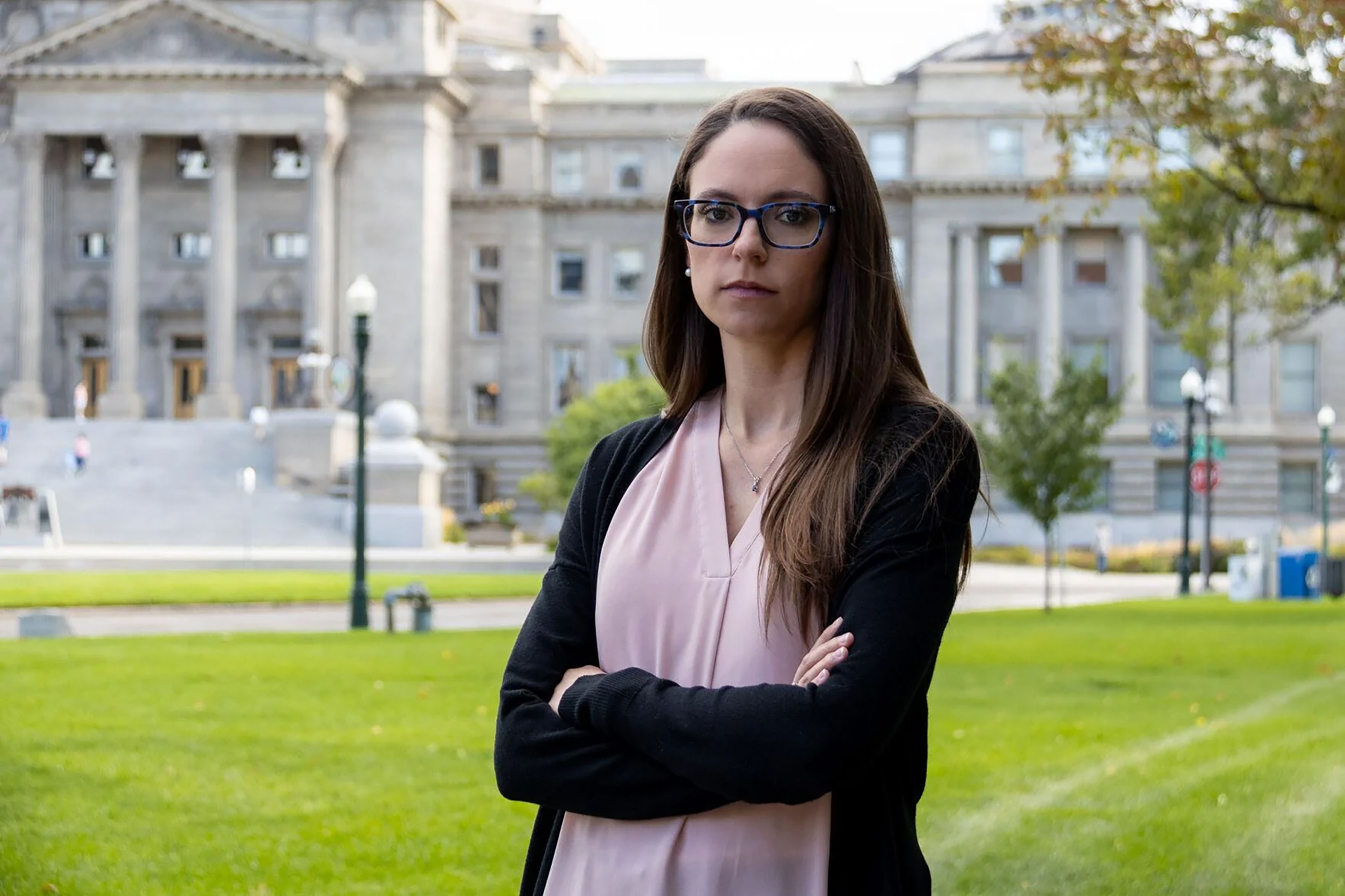Trial underway in Idaho abortion ban challenge
Four women denied procedure take the stand Tuesday; Idaho OB-GYN testifies in case challenging Gem State’s abortion ban
Four women who experienced pregnancy complications and were denied abortions in Idaho testified Tuesday on the first day of a trial in a case challenging the limited exceptions in Idaho’s abortion bans.
The women, at times tearful and taking moments to regain composure, all described their planned pregnancies that resulted in fatal fetal diagnoses, and their decisions to terminate the pregnancies. An Idaho OB-GYN, who is another plaintiff in the lawsuit, also gave lengthy testimony that stretched into Wednesday on her experiences under the laws.
Attorneys from the Center for Reproductive Rights first filed the lawsuit in Ada County District Court in September 2023 and challenged the fact that Idaho’s ban did not include exemptions to protect the health and future fertility of the mother.
The current felony ban includes an exemption to prevent the death of the mother as well as narrow exceptions for cases of rape and incest with a police report and in the first trimester.
In opening statements, Idaho Activating Division Chief of Civil Litigation and Constitutional Defense James Craig argued the plaintiffs were asking for “the court to declare that women have a right to kill their unborn child for no other reason than the fact the baby is disabled.”
“They’re asking the court to declare that women have a right to kill their baby, their unborn child, anytime they have a risk of infection,” Craig said.
He also argued there’s no constitutional protection to abortion or to protect fertility.
Judge Jason Scott presided over the hearing Tuesday, which lasted from 9 a.m. to around 5 p.m.
Testimony of plaintiffs — women denied abortions amid complications
Testimony on Tuesday was emotional as the women described their pregnancies and subsequent complications due to fetal anomalies or fatal diagnoses. It was also peppered with objections from the state’s attorneys, usually challenging relevance to personal details or “hearsay.” Most, but not all, of the objections were overruled by the judge.
Caldwell resident Jennifer Adkins, former Meridian resident Jillaine St.Michel, former Nampa resident Kayla Smith, and Kuna resident Rebecca Vincen-Brown testified on their experiences going out of state to seek abortions after learning their fetuses were unable to survive outside the womb. Boise-based OB-GYN Dr. Emily Corrigan testified to her experience in providing care amid complications and the uncertainty caused by the laws, as well as fear of steep felony penalties that would threaten prison time.
Adkins took the stand first, describing her second pregnancy during which she learned the fetus had fluid behind the neck and under the skin, and that the pregnancy would likely end in miscarriage and Adkins faced a high risk of mirror syndrome, which would result in her developing similar conditions to her fetus.
Adkins and her husband opted to travel to Portland, Ore., for an abortion.
“We made that decision because it felt like the most compassionate decision we could make for our baby who was not going to survive, and because we had an 18-month-old son that I needed to be here and healthy and able to care for him,” Adkins said.
She said they drove six hours for the appointment, during which she was concerned she would miscarry along the way. Adkins had a second child earlier this year and said she hasn’t ruled out future children, but Idaho’s abortion laws “almost exclusively factor” in that decision-making.
St.Michel, who lived in Meridian at the time, was also in her second planned pregnancy when she found out about complications at around 20 weeks. She found out during a routine ultrasound that her fetus had multiple anomalies in several different organ systems, she said.
St.Michel’s voice wavered as she described the different anomalies, which included issues with the stomach, heart and all the extremities.
“My understanding was the severity of all those issues led to very poor outcomes, that the pregnancy was likely not going to make it to term, but if it did, it definitely would lead to a baby that has no chance of survival,” she said.
She said she received a list of providers in neighboring states, and her husband called close to 20 before the family was able to secure an appointment in Seattle. There were four days between receiving the fetal diagnosis and her appointment, she said.
“It was the worst four days of my life,” she said.
The couple already had a toddler, so her husband had to stay back at the hotel with their child while St.Michel went to the appointment by herself.
St.Michel and her family now live in Minnesota, she said, and she likely wouldn’t return to Idaho until her children are grown because of the state’s abortion laws and her experience.
“Knowing what I went through, knowing what the state’s representatives have decided is acceptable reproductive care for women, I can’t imagine my daughter and son receiving that kind of messaging,” St.Michel said. “I want them to have a belief that women can make decisions about their health care.”
Smith, who now lives in Washington state but previously lived in Nampa, had complications in all three of her pregnancies. She has an auto-immune disease and is predisposed to preeclampsia — a potentially life-threatening complication involving high blood pressure late in pregnancy.
Smith said medication to control it was initially effective but eventually stopped working and her condition continued to worsen in her first pregnancy. Her first child was born prematurely but safely and relatively healthy, she said.
She found out she was pregnant again on Mother’s Day in 2022, she said while taking deep, shaky breaths.
During her second pregnancy, at a routine anatomy scan at around 18 or 19 weeks, physicians found several heart defects in her fetus. Subsequent visits found the heart defects were severe. She received a diagnosis two days after Idaho’s felony ban, known as the “trigger law” as it was triggered by the overturning of Roe v. Wade, went into effect.
There was an option to perform surgery, but no specialist in the area would agree to take the case, Smith said.
She traveled to the University of Washington in Seattle for an induction, because it was important to her to meet the baby, she said. The estimate on the cost of the procedure was between $16,000 and $20,000 because it was not covered by insurance. The couple took out a personal loan to cover the procedure.
Asked if she would have preferred to do the operation in Idaho, Smith began to cry. She responded yes, because of her rapport with her doctors, and said that the Seattle physicians didn’t know what her case was, which resulted in a staff member coming into her room “to say congratulations because they didn’t know the situation.”
Her family moved to Washington and she had her second child there.
Like the other women, Kuna resident Vincen-Brown was on her second pregnancy when scans detected several defects in the fetus and a high risk of triploidy, which means there is a high risk of miscarriage and the potential for the mother to develop symptoms of preeclampsia.
After a series of tests, Vincen-Brown and her husband chose to terminate the pregnancy.
“We made the decision because based on the genetics testing and the ultrasound, that there was no viable baby that was going to come out of this pregnancy,” she said.
They traveled to a clinic in Portland, Ore., chosen because it could offer genetic testing so the family could determine if there were hereditary reasons for the defects that could affect a future pregnancy.
On the first appointment day, physicians put dilating routes on her cervix to prepare for the dilation and curettage (D&C) procedure.
She said she expected some light cramping and bleeding, but around midnight after the appointment, Vincen-Brown started having labor contractions at her hotel. The couple’s car was far away, parked in a valet lot, and they didn’t think insurance would cover an emergency room visit out of state.
Things progressed quickly, and she delivered her baby on the hotel bathroom floor, she said.
“If it was in Idaho, and it was different, I would have been able to get into the car first thing when I first started contracting, drove down to the hospital, been with the doctors whom I trusted, been in an environment that I knew,” she said. “It would have been covered by health care that I had, and I wouldn’t have given birth to a baby while my 2-year-old daughter was on other side of the wall.”
Her voice cracked at the mention of her daughter.
Cross-examination by the state was limited, focusing mostly on whether the women were pregnant at the time the lawsuit was filed — three of them were — and if they planned to have another child in Idaho.
Dr. Corrigan’s testimony
Another plaintiff in the suit is Corrigan, a physician who specializes in obstetrics and gynecology and practices as Saint Alphonsus. The attorneys bringing the suit emphasized Corrigan’s experience and expertise in the subject, showing her educational and professional background.
Corrigan has also been vocal in her opposition to Idaho’s laws as written, including testifying at the Idaho Legislature requesting a health exemption.
Corrigan’s testimony included detailed, technical explanations of different types of pregnancy complications that might warrant abortion as an option, different types of abortion procedures, and different professional medical groups’ guidelines regarding abortion and complications.
After the felony abortion ban took effect in August 2022, Corrigan said there was “mass confusion on the part of the physicians and the administration, and the hospital staff.”
The was confusion around which medical problems would meet the law’s criteria “to prevent the death” of the mother, and “how close to death the patient needed to be.”
“There must be a line, because every pregnant patient is at risk of death the longer they remain pregnant,” Corrigan said Tuesday. “It is impossible for me to know where that line is, for example, for a county prosecutor.”
The testimony continued past Tuesday’s 5 p.m. end-time and went into Wednesday afternoon, including cross-examination by the state.
Many of the questions also focused on the federal rule known as EMTALA, which requires treatment be provided in emergency situations, and a case that went to the Supreme Court questioning if abortion care was included in that requirement.
During Wednesday’s cross examination, the state questioned her standing to bring the lawsuit, if her job was significantly altered by the law going into effect, and her potential bias.
Many of the questions also focused on Saint Alphonsus’ policies as a Catholic hospital, many of which prohibit abortion in many cases.
One of the documents included directives for Catholic health care ministries, including witnessing “the sanctity of life from the moment of conception until death.”
She was also questioned on how many abortions she performed before and after the Supreme Court decision overturning Roe v. Wade, which Corrigan didn’t remember exactly. She estimated she performed three abortions in 2022. She previously said in her deposition that she performed approximately one to two abortions a year.
The defense asked Corrigan to read text messages she sent to a colleague about a video and article that the judge did not allow to be submitted as exhibits.
Corrigan wrote in the messages, “It’s not the politicians’ place to make this decision for everyone, life altering for a family to care for a child with so many needs.”
The testimony lasted until early Wednesday afternoon.
The trial is expected to last until Dec. 2.
Guido covers Idaho politics for the Lewiston Tribune, Moscow-Pullman Daily News and Idaho Press of Nampa. She may be contacted at lguido@idahopress.com and can be found on Twitter @EyeOnBoiseGuido.
